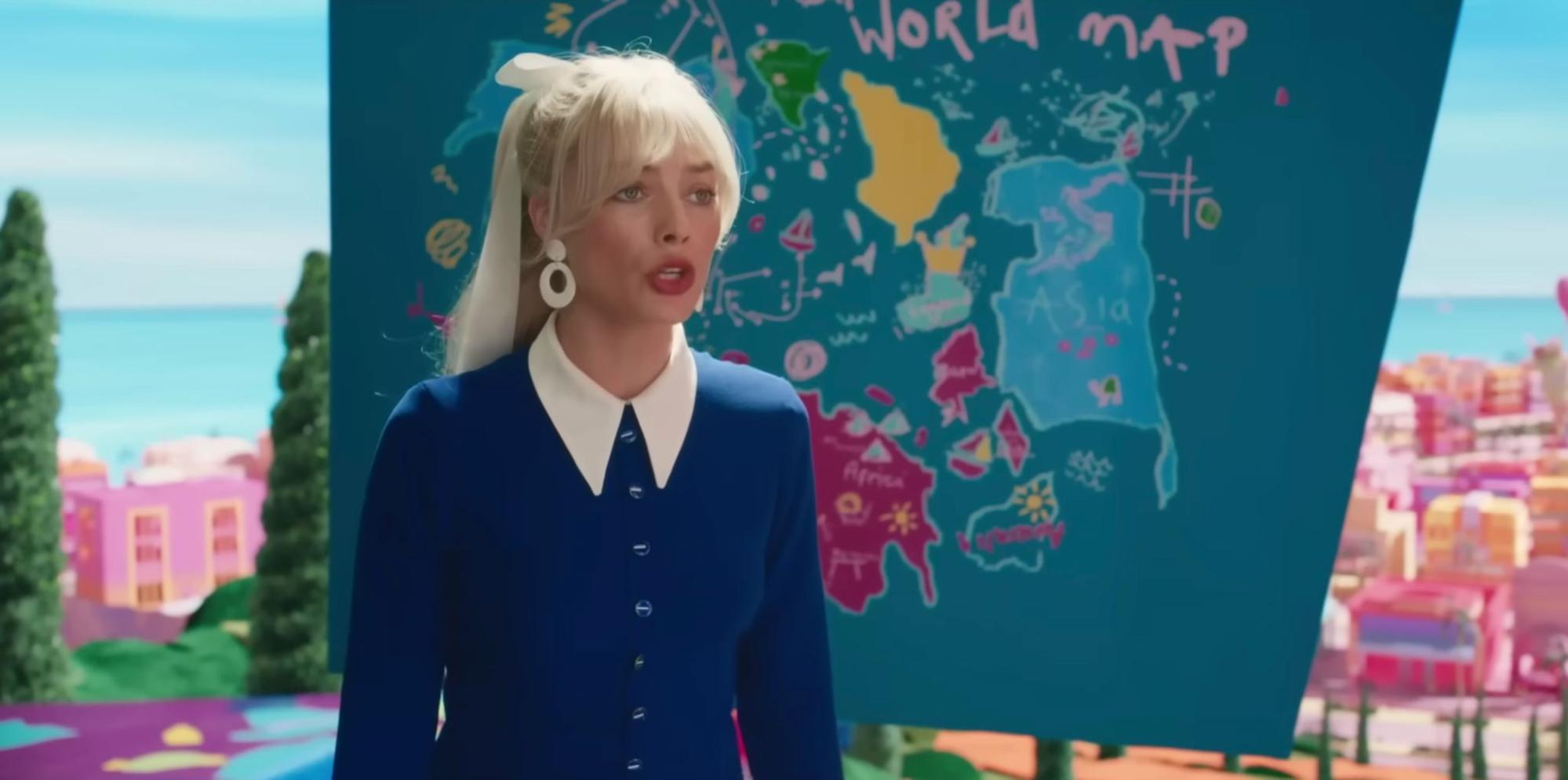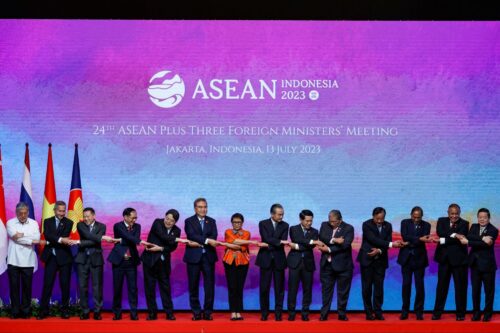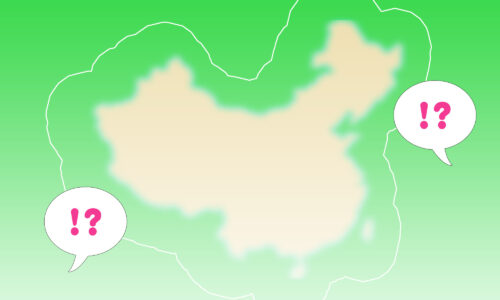‘Now I must see it’: ‘Barbie’ movie banned in Vietnam, praised in China over controversial South China Sea map
While Vietnam's culture ministry fumes over a controversial map in the new "Barbie" movie, people on Chinese social media are celebrating Warner Bros. for its "choice" to include the nine-dash line.

C’mon, Barbie, let’s go…stir up some geopolitical controversy!
As the press cycle for Warner Bros.’s highly-anticipated Barbie movie ramps up to full throttle, Vietnamese officials told state media on Monday that the pink-soaked fantasy comedy movie would not be shown in the country because of a scene featuring a map that shows China’s claim over a disputed part of the South China Sea.
China news, weekly.
Sign up for The China Project’s weekly newsletter, our free roundup of the most important China stories.
Meanwhile, in China, where Barbie has already secured theatrical distribution, the news has been met with a swell of patriotic fervor, with some internet users saying that they will watch and support the film for political reasons.
Citing local news coverage, Reuters reported yesterday that at the heart of the issue was the nine-dash line depicted on the map, a U-shaped demarcation that encompasses vast areas in the South China Sea that China claims as its sovereign territory. This boundary used on Chinese maps has long faced opposition from other nations in the region, including Vietnam, who views some of the contested, resource-rich waters as its own.
“We do not grant license for the American movie ‘Barbie’ to release in Vietnam because it contains the offending image of the nine-dash line,” Vi Kien Thanh, head of the Vietnam Cinema Department under the Ministry of Culture, Sports, and Tourism, a government body responsible for licensing and censoring foreign films, was quoted telling state-run newspaper Tuoi Tre, adding that the decision was made by the National Film Evaluation Council.
According to local media reports, Barbie, directed by Greta Gerwig and featuring a star-studded cast including Margot Robbie and Ryan Gosling, was originally slated to open in Vietnam on July 21, the same date as in the U.S. and China. Based on Mattel’s iconic plastic doll, the live-action film has generated a massive amount of online buzz in the weeks leading up to its upcoming release, thanks in large part to its savvy marketing strategy, which involves a slew of product partnerships and publicity stunts tailored to the meme-loving crowds.
On Twitter, many were surprised that what they consider to be a light-hearted, fun-oriented film landed itself in geopolitical hot water, with some questioning if it’s necessary for the movie to include the contentious map in the first place. “vietnam is technically correct but i dont understand why u need a map in this movie … why would barbie ever need to know what the south china sea is,” a Twitter user wrote, while another joked, “the Barbie marketing team saw where it was down for the count and went against Oppenheimer where that film was strongest: escalating a geopolitical conflict in Asia.”
But Barbie isn’t the first feature to run afoul of media authorities in Vietnam over the depiction of the nine-dash line. Previously, the Vietnamese government pulled DreamWorks’ animated film Abominable and banned Sony action movie Unchartered for the same reason. In 2021, Netflix had to remove Australian spy drama Pine Gap from its services in the country over two episodes showing maps which Hanoi officials said were a “misrepresentation of Vietnam’s sovereignty” and had “angered and hurt the feelings of the entire people of Vietnam.”
The South China Sea is one of the most economically and geostrategically important stretches of water in the world, and its territory is heavily debated among China and many of its neighbors. Beijing, the region’s economic and military heavyweight, claims more than 80% of the South China Sea and backs up its claim with a 1947 map that shows vague markings that have since become known as the nine-dash line. It has also sought to shore up its vast claim to the sea by building military bases and artificial islands in strategic spots.
These moves, however, have been condemned by countries like Vietnam, who claim parts of the same maritime area and have sparred with China over which claims are valid. In 2016, a United Nations disputes resolution tribunal in The Hague ruled unanimously against the validity of the nine-dash line, but China rejected the ruling and has stood by its claim.
On Chinese social media, where the nine-dash line has long been heralded as a symbol of patriotism and nationality, the news of Barbie‘s controversial map has received heaps of praise. On Weibo, some applauded Warner Bros. for “picking the right side on an important matter,” while others pointed out that it’s ultimately a sensible financial decision working in China’s favor. “Barbie knows which film market is bigger,” a Weibo user commented, while another person remarked, “I initially had no interest in the film but now I must see it.”
Although it’s unclear whether Barbie’s showing of the nine-dash line is an intentional move to please Chinese audiences, Hollywood has a long tradition of abiding by Beijing’s sensitivities to gain access to and reap profits from the lucrative Chinese market. Beyond editing out scenes to comply with China’s restrictions on graphic nudity, violence, and depictions of same-sex relationships, the past few years have seen a new phenomenon of Hollywood movies creating alternate endings to make the content more palatable to the Chinese government.
Such practices of self-censorship have come under heightened scrutiny as hawkishness toward China has intensified in Washington. Earlier this year, in a bid to discourage studios from censoring content to appease the Chinese government, Washington policymakers updated a defense bill to restrict cooperation between the U.S. government and any American film studios that edit or alter their movies for audiences in China.






